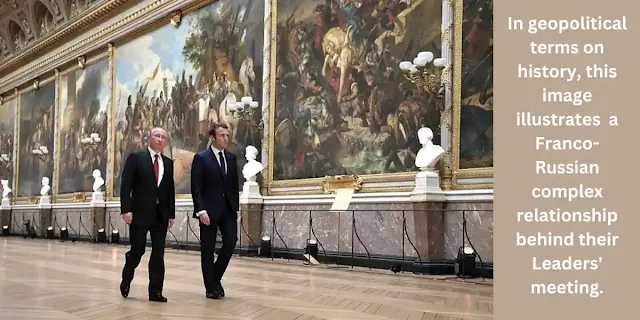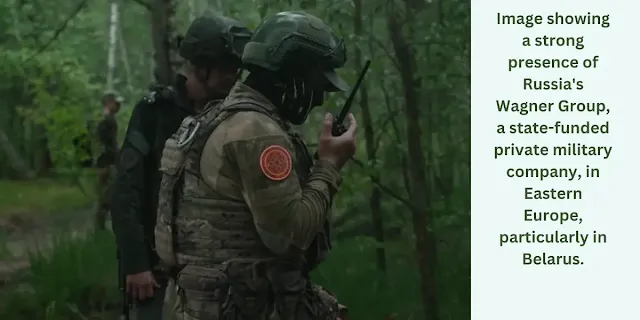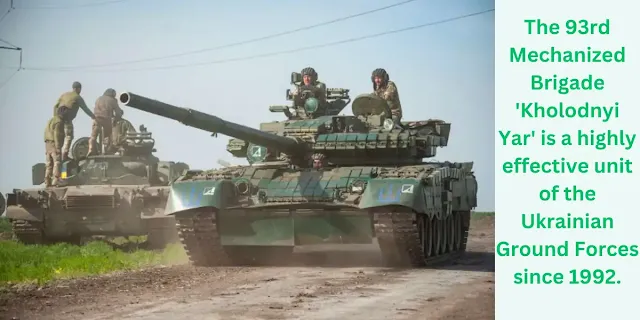The Geopolitical Chessboard: Exploring the Franco-Russian Rivalry
French President Emmanuel Macron emphasized the urgency of the Ukraine crisis, stating, "But if we decided to be weak; if we decided today that we would not respond, it would be choosing defeat already. And I don't want that" (Source: Reuters, March 15, 2024). His recent announcement regarding the possibility of European nations sending troops to Ukraine highlights the ongoing Franco-Russian rivalry in geopolitics. While there is no settlement on troop deployment at this stage, Macron's statement emphasizes the urgent need to prevent Russia from gaining the upper hand in the conflict.
 |
Image Credit: Wikimedia Commons: Vladimir Putin and Emmanuel Macron |
In a hypothetical scenario where Russia were to fully annex Ukraine, it would likely lead to a significant decrease in Russia's dominance and acceptance within Europe. Such a situation could have a profound impact, causing France to become more concerned.
In reflection of contemporary geopolitics, Russia is perceived as France's biggest adversary. While neither Britain nor the USA currently pose a direct challenge to France's position, Russia's actions significantly threaten French strategic interests worldwide. If France sends troops to Ukraine, it could escalate tensions with Russia. This move, coupled with France's diminishing influence in Africa and Russia's possible annexation of Ukraine, raises concerns about the possibility of another Franco-Russian war, similar to historical conflicts. One of the objectives of this article is to portray the Franco-Russian power play in the context of history and ongoing world politics.
💻 Table of Contents:
- France's Dynamic Policy on the Russia-Ukraine Conflict
- Allies Reject Macron's Ukraine Troop Remarks
- France's Historic Adversaries - Austria, England, and Germany
- France-US Geopolitical Competition and Interests
- Napoleon's Invasion of Russia: A Prelude to Franco-Russian Rivalry
- Franco-Russian Conflict beyond Borders: Russia's Strategic Moves
- Russia's Presence in the Sahel Region
France's Dynamic Policy on the Russia-Ukraine Conflict:
French President Emmanuel Macron initially sought diplomatic solutions to the Ukraine crisis, emphasizing a European security order that included Russia. However, his stance has evolved due to concerns about Russia's hybrid warfare tactics. Macron now considers sending troops to Ukraine to demonstrate Europe's ability to act independently, without relying on US assistance, and to counter Moscow's potential impact on Moldova, the South Caucasus, and the Sahel.
Macron's shift has been met with mixed reactions from European allies. While Eastern and Central European countries have welcomed his hardened stance, others remain cautious. Macron's evolving position on the Russia-Ukraine war highlights France's strategic challenges in geopolitics and diplomacy.
Allies Reject Macron's Ukraine Troop Remarks:
In response to Macron's reaction, Kremlin spokesman Dmitry Peskov claims French President's statements indicate an increasing level of engagement in the war, suggesting France is already fighting against Russia in Ukraine.
Meanwhile, allies of Russian President Vladimir Putin warned French President Emmanuel Macron that sending troops to Ukraine would meet the same fate as Napoleon Bonaparte's Grande Armee in 1812. Vyacheslav Volodin, chairman of the State Duma and a close ally of Putin, stated, "Before making such statements, it would be right for Macron to remember how it ended for Napoleon and his soldiers, more than 600,000 of whom were left lying in the damp earth" (The New York Sun, February 28, 2024).
Besides, allies, including the US, NATO, and various European leaders, quickly distanced themselves from Macron's remarks, emphasizing that sending combat troops to Ukraine was not on the table. According to The Guardian on February 27, 2024, Swedish Prime Minister Ulf Kristersson expressed that while Macron could engage in discussions regarding France's troop deployment to Ukraine, it would be outside the scope of NATO's framework: "If a country sends troops somewhere else in the world it doesn’t affect NATO."
Despite criticism from NATO states and Russia, Macron's strategic aims to inject an indirect challenge into Moscow's war plans. While NATO's response to Russian aggression has been inadequate, Macron's call for action signifies a shift in European defense strategy & future security.
 |
Image Credit: Wikimedia Commons: Wagner Group |
France's Historic Adversaries - Austria, England, and Germany:
Throughout history, France has had various adversaries and conflicts with different countries. Some of the remarkable historical enemies or challengers that France faced are also below:
Empire of Austria (Habsburg Dynasty): From the 1500s to the early 1800s, the Habsburg-controlled Empire of Austria posed a significant challenge to France. The Habsburgs, who controlled vast territories in Central Europe, often clashed with France over territorial disputes, power struggles, and conflicts of interest. These conflicts included the Habsburg-Valois Wars and the Wars of the Austrian Succession.
England: France and England have a long and storied history of rivalry and conflict that spans several centuries. One significant chapter in this rivalry was the Hundred Years' War (1337-1453), marked by territorial disputes and power struggles. However, the rivalry between the two nations persisted beyond that period.
In the 18th century and early 19th century, France and England, as major European powers, competed for dominance in various arenas. They found themselves on opposite sides in conflicts such as the War of the Spanish Succession (1701-1714) and the Seven Years' War (1756-1763). This rivalry extended to the American Revolutionary War (1775-1783), where France supported the American colonies against British rule.
Prussia/Germany: From the 1800s to the 1900s, Prussia and later Germany emerged as a significant challenge to France. The Franco-Prussian War of 1870-1871 resulted in France's defeat and the subsequent formation of the German Empire. France and Germany had subsequent conflicts, including World War I and World War II, which deeply impacted their relationship.
💻 You May Also Like:
- The Final Blow to Napoleon's Era: And The Beautiful Alliance's Victory
- The Great Northern War: Catalyst for the Rise of the Russian Empire
- Unveiling the Treaty of Alliance: USA's Geopolitical Journey
- Russo-Georgian War of 2008 : Europe’s first war of the 21st century
- Poland's Rise as a Central European Military Power: A Strategic Overview
France-US Geopolitical Competition and Interests:
France and the United States have been engaged in a complex competition characterized by differing defense strategies and conflicting interests. France's push for an independent European Army has raised concerns in the US that it may break the unity of Western allies and undermine American importance. For which, U.S. President Donald Trump was not impressed with Emmanuel Macron’s suggestion that Europe should have its own army.
Additionally, France has declined to align with the American position on China and remains committed to its vision of a multipolar world. Besides, the exclusion of France from the QUAD alliance and the formation of the AUKUS partnership with Australia in the Indo-Pacific have further strained the relationship.
Competition for military contracts, France's opposition to the US-led invasion of Iraq in 2003, and disagreements over Ukraine and the JCPOA have all contributed to tensions between the two allies. Moreover, the US's focus on bolstering Poland as a strong blocking against Russian aggression has implications for France's influence and the division of power in Europe.
Napoleon's Invasion of Russia: A Prelude to Franco-Russian Rivalry
Despite cooperation, such as the Treaties of Tilsit (July 7, 1807), where the Franco-Russian alliance promised mutual support (France pledged aid to Russia against the Ottoman Empire, while Russia agreed to join the Continental System against the British Empire), and The Congress of Erfurt (September 27, 1808 – October 14, 1808), where both leaders reaffirmed their alliance, Russia faced economic difficulties due to its adherence to the Continental System.
In the above description, the Continental System refers to Napoleon's Berlin Decree of 1806. This decree established the Continental System, which forbade the import of British goods into European countries allied with or dependent upon France. It cut off trade connections and subjected ships to French maritime attacks.
On December 31, 1810, Tsar Alexander I withdrew from the Continental System and initiated open trade with Britain. In response to Russia's refusal to adhere to the Continental System, Napoleon Bonaparte launched a military campaign against Russia in 1812 that commonly known as the French Invasion of Russia. It was also referred as the Patriotic War of 1812 in Russia and the Russian Campaign in France. It began in June 1812 when Napoleon’s Grande Armée crossed the Niemen River with the objective of forcing Tsar Alexander I to comply with the Continental System.
However, the Russian strategy adopted a defensive approach, employing scorched-earth tactics and avoiding direct engagement. Napoleon quickly mobilized his Grand Army, comprising around 700,000 men, to Poland, near Russia's border. The war between Russia and France ended in a catastrophic defeat for Napoleon, resulting in one of history's deadliest military operations, with approximately 1,000,000 total casualties. Eventually, the conflict between Napoleon and Russian Tsar regarding the Continental System served as a prelude to the Franco-Russian rivalry, setting the stage for their subsequent geopolitical interests.
It is noted here that the breakdown of the alliance between France and Russia was inevitable due to additional geopolitical factors as follows:
The Milan Decree of 1807 reinforced this by authorizing French warships to capture neutral ships sailing from British ports.
Additionally, the UK's Orders in Council of 1807, which instituted a policy of commercial warfare against Napoleonic France, further strained relations between Britain and neutral countries. Napoleon's Continental System aimed to weaken Britain economically, initiating a large-scale embargo on British trade.
Additionally, Russia was displeased with France's dominance in continental Europe, particularly its control over Spain, Italy, the Balkans, and various satellite states. Napoleon's encouragement of the Ottoman Empire to resist Russian influence in the south and Franco-Persian cooperation against Russia further exacerbated tensions.
Besides, France's influence over Austria and the forced reconciliation between Austria and France exacerbated tensions. Ultimately, Russia could not tolerate French dominance, and France could not achieve success against Britain without Russian support. This led to the dissolution of the alliance and the onset of another political conflict between the two powers.
Franco-Russian Conflict beyond Borders: Russia's Strategic Moves
The geopolitical rivalry between France and Russia extends beyond their immediate spheres of influence, often playing out in conflicts worldwide. In Africa, Russia's influence, facilitated by the Wagner Group, is expanding rapidly, particularly in regions once under French control. Over the past decade, French influence in its former colonies has waned, leading to the collapse of the neocolonial imperium known as "Françafrique."
France's withdrawal from several African nations, including the Central African Republic, Burkina Faso, and Niger, has created a power vacuum that Russia has quickly filled. The Wagner Group, acting as Moscow's surrogate, has established Russian influence and control across the continent, dismantling France's once-powerful empire, which covered one-quarter of Africa.
Syria:
In Syria, France and Russia have found themselves on opposite sides of the conflict. France has been a vocal supporter of the Syrian opposition and has called for the removal of President Bashar al-Assad. Meanwhile, Russia has provided crucial military support to the Assad regime, including air support and weapons, helping the Syrian government regain control of key territories.
Libya:
The conflict in Libya has also seen France and Russia supporting opposing sides. France has backed the Libyan National Army led by Field Marshal Khalifa Haftar, which controls much of eastern Libya. In contrast, Russia has supported the Government of National Accord based in Tripoli, providing military assistance and backing from private military contractors.
The conflict in Libya has underscored the broader geopolitical clash between France and Russia. France has backed the Libyan National Army led by warlord Field Marshal Khalifa Haftar, aiming to prevent jihadist groups from obtaining weapons and funds that could destabilize neighboring countries like Niger, Chad, and Mali. This support aligns with France's efforts to combat terrorism and maintain stability in the region through operations like Barkhane.
On the other hand, Russia considers Libya one of its key allies in the Arab world and has supported the Government of National Accord based in Tripoli, providing military assistance and backing from private military contractors. This support has intensified the rivalry between France and Russia, not only in Libya but also in neighboring countries like Niger, Chad, and Mali, where both nations have competing interests and significant military presences.
Central African Republic (CAR):
France has criticized Russia's Wagner Group in CAR for abuses and resource exploitation. Wagner's arrival ultimately prompted France to withdraw its troops by December 15, 2022, allowing Wagner to mine gold, diamonds, and wood. In 2021, President Macron accused Touadera of being a "Hostage" to Wagner, who brought in Russian paramilitaries to help him stop rebel groups advancing on the capital. This highlights the broader France-Russia struggle for influence in CAR, a former French colony.
Russia's Presence in the Sahel Region:
The Sahel, once under French influence, is now witnessing a significant shift in power dynamics as Russia strengthens its presence in the region. Resentment against perceived Western interference has fueled a series of military coups in countries like Mali, Niger, and Burkina Faso. France's support for pro-Western governments has backfired, leading to increased anti-France sentiment and the withdrawal of French troops from Niger. Importantly, The Sahel Region refers a semi-dry zone of land in Northern Africa that stretches across ten countries from the Atlantic Ocean in the west to the Red Sea in the east. The Sahel means to the desert's edge, derived from the Arabic word for "shore."
Moreover, the recent arrival of Russian troops in Niger marks another strategic victory for Moscow, as the African country's junta joins its Sahel neighbors in pivoting away from the West. This underscores Russia's increasing role in challenging France's long-standing dominance in the Africa region.
Meanwhile, Russia has seized the opportunity to increase its influence, signing military cooperation agreements and providing security assistance. Russian President Vladimir Putin's outreach to African nations, particularly in the Sahel, has been well received. Russian troops, including those from the Wagner Group, have been deployed to the region, marking a significant blow to French influence.
By late 2022, as France's nine-year effort to stabilize the Sahel region faded, Wagner's forces were already profiting from various ventures. They were operating secret gold mines in Sudan, running the largest gold mine in the Central African Republic, and earning $200 million annually by providing security in Mali, which has been plagued by Islamist rebels.
 |
Image Credit: Picryl |
Conclusion:
The Franco-Russian rivalry is a complex interplay of geopolitics, history, and strategic interests. From Ukraine to Africa, France and Russia compete for influence and control. Recent remarks by President Macron about European troops in Ukraine highlight the urgency of the situation.
The power struggle extends beyond Europe, with both nations vying for dominance in regions once under French control. As conflicts persist and Russia's presence grows, the implications of this rivalry become increasingly apparent. The world is observing as France and Russia make strategic moves to secure their interests, exploring their rivalry in geopolitics and the power play of political regimes.





